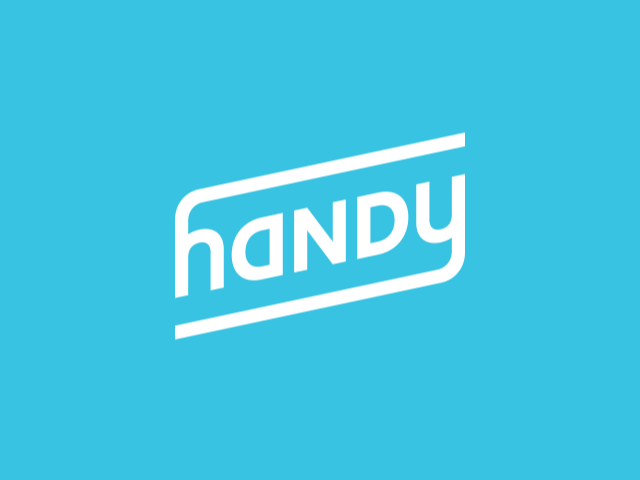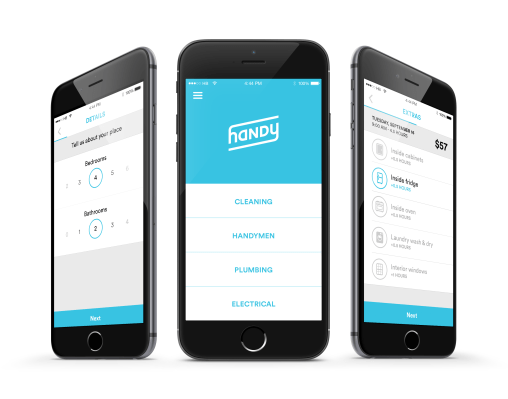What’s in a name? As it turns out, a lot.
That’s the thinking behind Handybook’s decision to rebrand itself simply as “Handy.” The two-year old company, which provides on-demand home services via a web and mobile app, wants to become the definitive brand in the category… and it believes that when it comes to building a brand, shorter is better.
Handy isn’t the only company to make a move like this, just the most recent. Once upon a time Airbnb had the much longer domain name Airbedandbreakfast.com before simplifying its messaging and becoming a global hospitality brand. Uber was known as UberCab before the on-demand ride company acquired its domain name from Universal Music. More recently, Crowdtilt rebranded as Tilt as it seeks to change the way people think about crowdfunding their projects.
In each case, those companies were hoping to not just reduce the number of keystrokes to reach their services, but also to more clearly define the brand and category they were operating in. Handy is looking to do the same. With a new name and domain at Handy.com, the company hopes to become synonymous with home services booking.
“There’s not a standout brand that’s been created for home services,” Handy co-founder and CEO Oisin Hanrahan told me. “So we decided to make this investment in how we thought about building a brand.”
Hanrahan wouldn’t say how much the domain name cost, except that “it wasn’t cheap.” The company purchased it from a German entity, which owned the domain because apparently in that language “handy” is another word for mobile phone. It had actually been considering the purchase for a while before pulling the trigger on what would be a non-trivial expense for the company.
“It was something that we went back and forth on as a board,” Hanrahan told me. He said the company had been talking about the purchase for about a year, but decided now was the right time to make an investment in its brand. That decision comes as Handy looks to expand into new markets and also into new service offerings.
Today, Handy’s services are available in 27 cities, with the bulk of those in the U.S. But the company recently made its entry into Europe, with the launch of a new London office to serve as its headquarters on that continent. As a result, we can probably expect to see it become available in more cities not just in the U.S. but also overseas.
As for the expansion into other services, there are a number of different things the company could add. Currently Handy offers the ability to book cleaning services, as well as general handyman, plumbing, and light electrical contractors through its website and mobile app. But it’s hoping to expand into a wider range of other verticals over time. Hanrahan mentioned the possibility of adding services like laundry, once it already has a presence in users’ homes.
“Cleaning is the beachhead into the home and we want to deliver all of those services,” he said. “We think this is like an amazon for home services play.”
In addition to the new brand, Handy also has a new logo. That logo is what one would call an ambigram — that is, a symbol which has the same meaning when viewed from another direction. In the case of Handy’s logo, the font of the “a” and “d” make them mirror images of each other, while the “h” and “y” have long looping lines above and below that make them interchangeable when reversed. The logo spins in the app while it is loading, but somehow always lands back at the word “handy.”
It’s what some people might call “pretty neat.”

